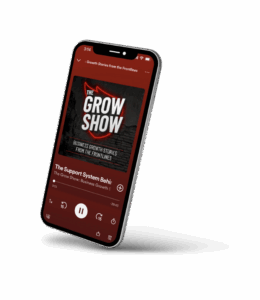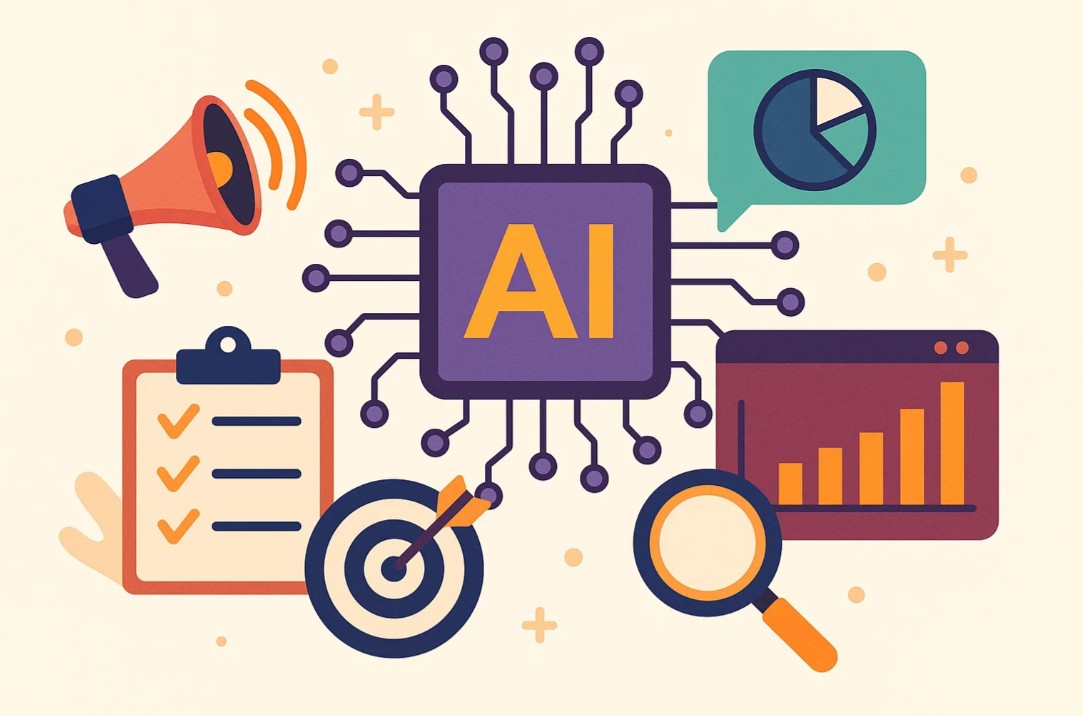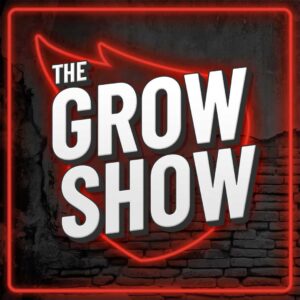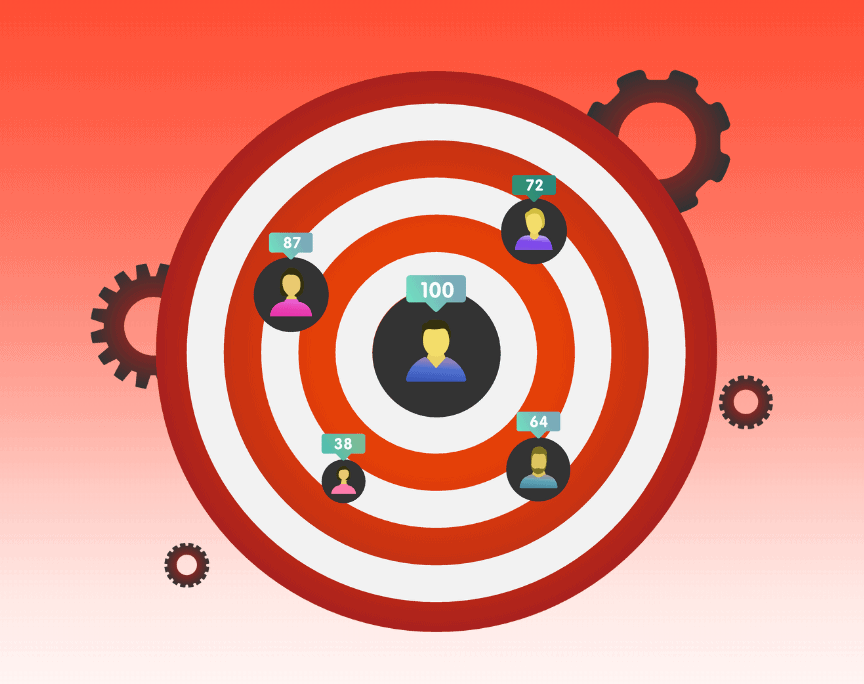In the fast-evolving digital landscape, marketing strategies are no longer about intuition alone. Artificial intelligence (AI) has transformed how brands connect with audiences, optimize campaigns, and drive measurable results. For marketers aiming to stay ahead, leveraging the best AI marketing tools is no longer optional—it’s imperative.
This comprehensive guide dives deep into the top AI-powered marketing platforms and technologies that are reshaping the industry. From data-driven customer insights to automated content creation and predictive analytics, discover how these tools empower marketers to deliver personalized, impactful experiences at scale.
Contents
- 1 Why AI Marketing Tools Are Game-Changers
- 2 Top AI Marketing Tools for Data-Driven Insights
- 3 AI Tools Revolutionizing Content Creation and Personalization
- 4 AI-Powered Advertising and Social Media Tools
- 5 Future-Proofing Your Marketing Strategy with AI
- 6 Conclusion
- 7 Transform Your B2B Lead Generation with AI
Why AI Marketing Tools Are Game-Changers
Marketing has always revolved around understanding customer behavior and delivering the right message at the right time. However, the sheer volume of data and channels today makes manual analysis and execution inefficient and often ineffective. AI marketing tools address these challenges by automating complex processes, uncovering hidden patterns, and enabling hyper-personalization.
According to a recent report by MarketsandMarkets, the AI in marketing market is projected to grow from $12 billion in 2023 to over $107 billion by 2030, reflecting the rapid adoption of AI technologies. This growth is driven by the demand for enhanced customer experiences, improved ROI, and agile campaign management.
For marketers, AI tools translate into:
- Data-driven decision-making: AI algorithms analyze vast datasets to identify trends and customer segments that humans might miss.
- Personalization at scale: Delivering tailored content and offers to millions of users without manual effort.
- Efficiency and automation: Automating repetitive tasks such as email segmentation, social media posting, and ad bidding.
- Predictive insights: Forecasting customer behavior and campaign outcomes to optimize strategies proactively.
Understanding these benefits sets the stage for exploring the best AI marketing tools that harness these capabilities. Additionally, the integration of AI in marketing strategies allows brands to create more meaningful interactions with their customers. By leveraging machine learning and natural language processing, companies can analyze customer feedback in real-time, adjusting their messaging and offerings to better align with consumer expectations. This level of responsiveness not only enhances customer satisfaction but also fosters brand loyalty, as consumers feel valued and understood.
Moreover, AI marketing tools are not just limited to analyzing data; they also play a crucial role in content generation and optimization. For instance, AI-driven platforms can help marketers craft compelling copy, generate engaging visuals, and even suggest optimal posting times based on audience engagement patterns. This capability ensures that marketing teams can focus on strategic initiatives while the technology handles the more mundane aspects of content creation and distribution, ultimately leading to a more cohesive and effective marketing strategy.
Top AI Marketing Tools for Data-Driven Insights
1. HubSpot Marketing Hub
HubSpot’s Marketing Hub integrates AI-powered analytics and automation to streamline inbound marketing efforts. Its AI tools help identify high-value leads, segment audiences dynamically, and personalize email campaigns based on user behavior.
One standout feature is its predictive lead scoring, which uses machine learning models to prioritize prospects most likely to convert. This capability has helped businesses increase sales-qualified leads by up to 30%, according to HubSpot’s own case studies.
Additionally, HubSpot’s AI-driven content strategy tool analyzes search trends and competitor content to recommend topics that resonate with target audiences, enhancing SEO and engagement. This feature not only aids in content creation but also ensures that marketers are always aligned with the latest industry trends, allowing for timely and relevant content delivery that captures audience interest.
Furthermore, HubSpot offers robust integration with social media platforms, enabling marketers to leverage AI for social listening and sentiment analysis. By understanding how audiences perceive their brand across different channels, businesses can refine their messaging and improve overall customer satisfaction.
2. Google Analytics 4 (GA4)
Google Analytics 4 represents a significant leap forward with its AI-powered insights and predictive metrics. Unlike its predecessor, GA4 leverages machine learning to identify anomalies, forecast user actions, and provide conversion probability scores.
Marketers benefit from automated alerts that highlight unusual traffic spikes or drops, enabling swift responses to campaign performance shifts. Its predictive metrics such as purchase probability and churn probability allow for targeted remarketing campaigns that improve customer retention.
GA4’s cross-platform tracking also offers a holistic view of customer journeys, essential for optimizing omnichannel marketing strategies. This comprehensive tracking capability allows businesses to understand how users interact with their brand across various touchpoints, from social media to email campaigns, ensuring that marketing efforts are cohesive and effective.
Moreover, GA4’s integration with Google Ads enhances the ability to create highly targeted advertising campaigns. By utilizing the insights gained from user behavior, marketers can tailor ad content to specific segments, maximizing ROI and driving higher engagement rates.
3. IBM Watson Marketing
IBM Watson Marketing combines AI with deep analytics to deliver personalized customer experiences. Its AI engine processes structured and unstructured data, including social media sentiment and customer feedback, to create actionable insights.
Watson’s AI-powered campaign automation optimizes messaging and timing, boosting engagement rates. For example, companies using Watson have reported up to a 20% increase in email open rates and a 15% uplift in conversion rates.
Moreover, Watson’s ability to analyze competitor activities and market trends gives marketers a strategic edge in crafting differentiated campaigns. By understanding not only their own performance but also the competitive landscape, businesses can pivot their strategies to capitalize on emerging opportunities.
Additionally, Watson’s advanced segmentation capabilities allow marketers to create highly personalized experiences for different customer personas. By leveraging data on customer preferences and behaviors, businesses can tailor their marketing efforts to meet the unique needs of each segment, ultimately driving higher customer loyalty and satisfaction.
AI Tools Revolutionizing Content Creation and Personalization
4. Jasper AI (formerly Jarvis)
Content marketing demands creativity and volume, and Jasper AI streamlines this with advanced natural language generation. It assists marketers in producing blog posts, social media copy, email newsletters, and ad creatives with minimal input.
Jasper’s AI understands tone, style, and context, enabling brands to maintain consistent messaging while scaling content production. Users report up to a 50% reduction in content creation time, freeing teams to focus on strategy and optimization.
Its integration with SEO tools helps ensure content ranks well, driving organic traffic and lead generation. Moreover, Jasper AI offers templates tailored for various content types, making it easier for users to kickstart their projects. By providing suggestions based on trending topics and keywords, Jasper not only enhances creativity but also aligns content with audience interests, ensuring relevance and engagement.
Additionally, Jasper’s collaborative features allow teams to work together seamlessly, providing feedback and making adjustments in real-time. This fosters a more dynamic creative process, where ideas can be shared and refined, ultimately leading to higher-quality outputs that resonate with target audiences.
5. Persado
Persado leverages AI to craft emotionally resonant marketing messages. By analyzing language patterns and consumer responses, Persado generates optimized copy for emails, landing pages, and ads that maximize engagement.
Brands using Persado have seen conversion rate improvements ranging from 10% to 30%, attributable to its data-driven approach to emotional targeting. The platform continuously learns from campaign performance to refine messaging over time.
Its ability to test multiple variants rapidly allows marketers to identify winning messages without guesswork, significantly improving campaign ROI. Persado’s unique approach not only focuses on the words used but also on the emotional triggers that resonate with different audience segments, allowing for a more nuanced understanding of consumer behavior.
Furthermore, Persado provides insights into the emotional impact of various phrases, helping brands to choose language that not only attracts attention but also fosters a deeper connection with their audience. This level of personalization ensures that marketing efforts are not just seen but felt, driving stronger customer loyalty and engagement.
6. Dynamic Yield
Dynamic Yield focuses on real-time personalization across websites, apps, email, and kiosks. Its AI algorithms analyze user behavior and preferences to deliver individualized product recommendations, content, and offers.
Retailers leveraging Dynamic Yield have reported revenue increases of up to 15% through personalized experiences. The platform’s robust A/B testing and segmentation tools empower marketers to experiment and optimize continuously.
Dynamic Yield’s integration capabilities with major e-commerce platforms and CRM systems make it a versatile choice for brands seeking seamless personalization at scale. In addition to its powerful recommendation engine, Dynamic Yield offers insights into customer journeys, allowing brands to understand how users interact with their content and products at every touchpoint.
This comprehensive view enables marketers to create more targeted campaigns that speak directly to user needs and preferences, enhancing the overall shopping experience. By harnessing the power of data, Dynamic Yield not only boosts sales but also cultivates a more engaging and satisfying customer journey, ultimately leading to higher retention rates and brand loyalty.
AI-Powered Advertising and Social Media Tools
7. Adext AI
Adext AI automates digital ad management by optimizing budget allocation and targeting across platforms like Google Ads and Facebook Ads. Its machine learning engine identifies the best-performing audience segments and adjusts bids in real time.
Marketers using Adext have seen cost-per-acquisition reductions of up to 40%, while increasing overall conversions. The platform’s intuitive dashboard provides clear insights, making complex ad optimization accessible even for small teams.
Adext’s continuous learning loop ensures campaigns adapt to changing market conditions, maintaining peak performance. This adaptability is particularly crucial in today’s fast-paced digital landscape, where consumer behavior can shift rapidly due to trends or external events. By leveraging historical data and predictive analytics, Adext not only enhances current campaigns but also offers strategic foresight for future advertising efforts, allowing businesses to stay ahead of the curve.
Moreover, Adext AI provides detailed reporting features that allow users to analyze the effectiveness of various ad creatives and audience segments over time. This level of granularity empowers marketers to make data-driven decisions, fostering a culture of experimentation and optimization within their teams.
8. Cortex
Cortex uses AI to optimize social media content by analyzing visual and textual elements that drive engagement. It recommends the best times to post, ideal content formats, and even color schemes that resonate with specific audiences.
Brands employing Cortex report up to a 25% increase in social engagement and follower growth. The platform’s ability to benchmark against competitors provides actionable insights to refine social strategies.
By automating content planning and analysis, Cortex enables social media teams to focus on creativity and community building rather than manual data crunching. This shift not only enhances productivity but also encourages teams to experiment with innovative content ideas that can captivate their audience. With its AI-driven insights, Cortex helps brands identify emerging trends and topics that are gaining traction, allowing them to stay relevant in a crowded marketplace.
Additionally, Cortex’s visual analysis capabilities extend to understanding the emotional responses elicited by different types of imagery and messaging. This nuanced approach ensures that brands can tailor their content to evoke the desired reactions, ultimately fostering deeper connections with their audience.
9. Drift
Drift combines AI chatbots with conversational marketing to accelerate lead qualification and customer engagement. Its AI-powered bots handle common queries, book meetings, and route high-value leads to sales teams instantly.
Companies using Drift have experienced a 300% increase in qualified leads and a 20% reduction in sales cycle length. The platform’s integration with CRM and marketing automation systems ensures seamless lead nurturing.
Drift’s conversational AI creates personalized experiences that build trust and drive conversions in real time. By engaging potential customers in meaningful dialogue, Drift not only enhances user experience but also gathers valuable insights into customer preferences and pain points. This information can be pivotal for tailoring marketing strategies and product offerings to better meet consumer needs.
Furthermore, Drift’s analytics dashboard provides rich data on user interactions, allowing businesses to refine their conversational strategies over time. This data-driven approach enables companies to identify the most effective messaging and interaction styles, ensuring that every conversation is optimized for maximum impact. As a result, businesses can foster a more engaged customer base, leading to higher retention rates and long-term loyalty.
Future-Proofing Your Marketing Strategy with AI
Adopting AI marketing tools is not just about immediate gains; it’s about building a resilient, data-driven foundation for future growth. As AI technologies continue to advance, marketers who integrate these tools will unlock new levels of efficiency, creativity, and customer intimacy. For instance, AI can analyze vast amounts of consumer data in real-time, providing insights that were previously unattainable. This capability allows marketers to understand their audience on a deeper level, tailoring campaigns that resonate more effectively and drive engagement.
However, success depends on choosing the right tools aligned with business goals, investing in training, and continuously measuring impact. The best AI marketing tools are those that augment human expertise, freeing marketers to focus on strategic innovation rather than operational tasks. Moreover, the integration of AI doesn’t just enhance existing processes; it can also lead to the development of entirely new marketing strategies. For example, predictive analytics can help brands anticipate market trends and consumer behavior, enabling proactive adjustments to campaigns that keep them ahead of the curve.
In summary, the AI marketing landscape offers a wealth of options—from analytics and content creation to advertising and customer engagement. Embracing these technologies with confidence and clarity will empower brands to thrive in an increasingly competitive digital world. As we look to the future, the role of AI in marketing will only expand, with innovations such as voice search optimization and personalized customer experiences becoming the norm. By staying informed and adaptable, marketers can ensure they are not just keeping pace with change but are at the forefront of it, ready to leverage new opportunities as they arise.
Conclusion
Artificial intelligence is no longer a futuristic concept; it’s a present-day reality driving marketing success. The best AI marketing tools harness data, automate processes, and personalize experiences at an unprecedented scale. Whether it’s HubSpot’s predictive lead scoring, Jasper AI’s content generation, or Adext’s ad optimization, these platforms deliver tangible results that elevate marketing performance.
Marketers who adopt and master these AI tools position themselves as leaders in innovation and customer-centricity. The time to act is now—invest in the right AI marketing technologies and transform your marketing strategy into a powerhouse of efficiency, creativity, and growth.
Transform Your B2B Lead Generation with AI
Ready to harness the power of AI in your marketing strategy and become a leader in B2B lead generation? Abstrakt Marketing Group is your partner in achieving remarkable growth through high-quality leads. Our commitment to your success drives us to deliver results that not only meet but exceed your expectations. Learn More about how we can elevate your business with our proven expertise.

Madison Hendrix
Madison has worked in SEO and content writing at Abstrakt for over 5 years and has become a certified lead generation expert through her hours upon hours of research to identify the best possible strategies for companies to grow within our niche industry target audiences. An early adopter of AIO (A.I. Optimization) with many organic search accolades - she brings a unique level of expertise to Abstrakt providing helpful info to all of our core audiences.
- Madison Hendrix#molongui-disabled-link
- Madison Hendrix#molongui-disabled-link
- Madison Hendrix#molongui-disabled-link
- Madison Hendrix#molongui-disabled-link







